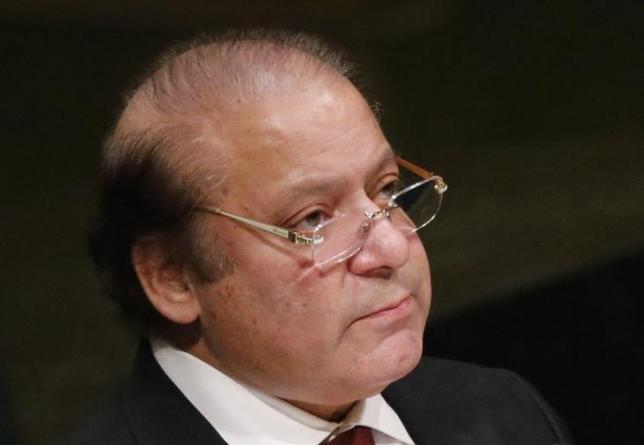Pakistan to tell US it won't accept limits on tactical nuclear arms
ISLAMABAD: Pakistani Prime Minister Nawaz Sharif will tell US President Barack Obama this week that Islamabad will not accept limits on its use of small tactical nuclear weapons, Pakistani officials said on Wednesday.
Pakistan insists smaller weapons would deter a sudden attack by its bigger neighbour India. But the United States worries tactical weapons may further destabilise an already volatile region because their smaller size makes them more tempting to use in a conventional war.
Sharif and Obama are due to meet on Thursday.
The United States wants Pakistan to commit to not using tactical nuclear weapons but Islamabad wants to keep its options open as a way of deterring a potential Indian attack, said Maria Sultan, head of the South Asian Strategic Stability Institute.
Pakistan says the United States is demanding unreasonable limits on its use of nuclear weapons and not offering much in return apart from a hazy promise to consider Pakistan as a recognised recipient of nuclear technology.
"Pakistan’s nuclear programme is ... India-centric. And it exists to make war a non-option ... Tactical nuclear weapons block off this room (for war) completely," said a security official with knowledge of Pakistan's nuclear program. "No one can dictate what kind of weapons we will make or use."
Pakistan was working on developing a nuclear submarine, he added. "The goal is a sea-based second strike capability," he said, referring to a submarine that could carry nuclear warheads and strike in case land-based nuclear weapons were wiped out.
Pakistan and India, both nuclear powers, have fought three wars since becoming separate countries in 1947. Both claim the disputed Himalayan region of Kashmir. India frequently accuses Pakistan of supporting militants operating on Indian territory.
For the past two years, Pakistan has tested missiles that can reach India's outermost territories, and very short range missiles that could be used if Indian troops cross onto Pakistani soil.
Pakistani Foreign Secretary Aizaz Chaudhry told state television on Tuesday this was a reaction to Indian threats to make a limited, lightning raid with conventional forces in case of militant attack, an idea known as the "Cold Start" doctrine.
"In India, they brought the cold start doctrine," he said. "So we have also preserved our deterrence capability."
Nonproliferation experts worry that Pakistan’s tactical nuclear weapons further destabilize an already volatile region.
"The smaller they (nuclear weapons) are, the more tempting it becomes to use them against a conventional force," said nuclear physics professor Pervez Hoodbhoy.
"The development and deployment of tactical nuclear weapons is a complete change of strategy. Earlier, nuclear weapons were instruments for deterring war, but now they’re seen as weapons for actually fighting a war."
Maria Sultan, head of the South Asian Strategic Stability Institute, said the United States was demanding that Pakistan increase its threshold for launching a nuclear attack and crack down on anti-India militants.
But it did not offer Pakistan what it craved, she said - recognition as a legitimate supplier of nuclear technology.






